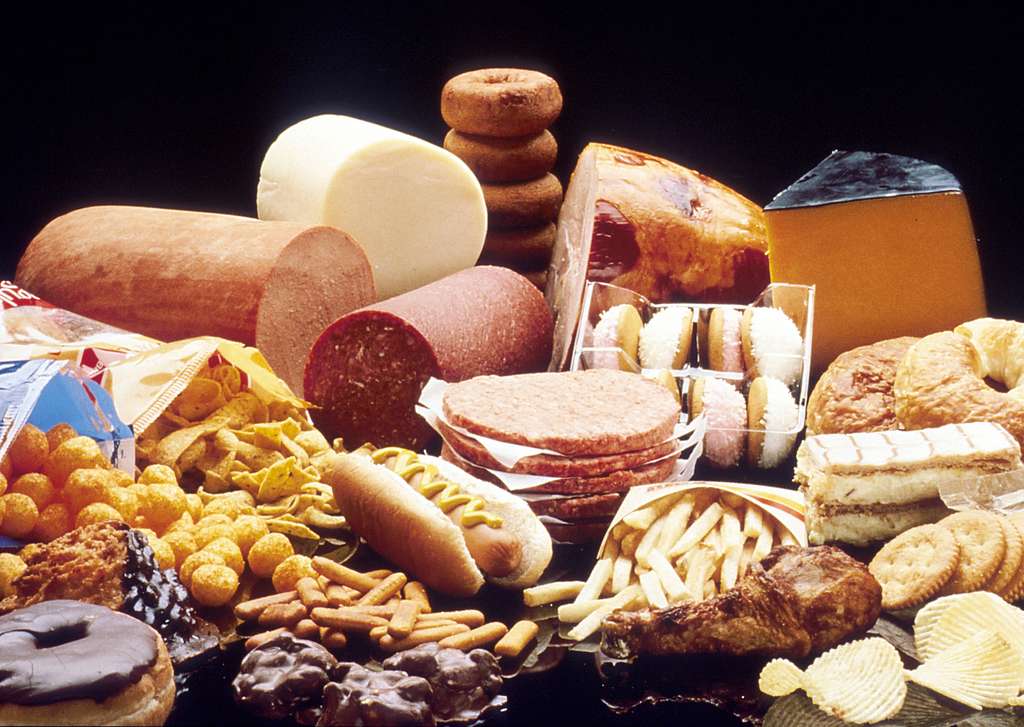A new study has found that people who eat lots of ultra-processed foods might face a higher lung cancer risk. The research, published in the respiratory journal Thorax, shows those consuming the most processed foods had a 41% greater chance of developing lung cancer compared to those eating the least.
Researchers tracked over 100,000 adults aged 55 to 74 for about 12 years. During this time, doctors diagnosed 1,706 new cases of lung cancer among participants.
Ultra-processed foods now make up more than half of what people typically eat in the UK and US. These items undergo extensive processing and contain multiple additives and preservatives. Think fizzy drinks, factory-made bread, ready meals, ice cream, and fast food.
The study team noticed that participants fell into different consumption groups. People in the lowest group ate only about half a serving daily, while the highest consumers averaged six servings per day. Most people ate around 2.8 servings daily.
The findings showed increased risks for both main types of lung cancer – 37% higher for non-small cell lung cancer and 44% for small cell lung cancer among heavy processed food eaters.
Why might these foods increase cancer risk? Researchers suggest several possibilities. Industrial processing can change how nutrients work in our bodies and potentially create harmful compounds. Some common food additives might disrupt helpful bacteria in our lungs and gut. Even food packaging might introduce chemicals that could be harmful.
“The study generates a compelling hypothesis that needs further research to validate the claim,” noted Dr. Nilesh Vora, medical director at MemorialCare Todd Cancer Institute.
This study has important limitations. Since researchers simply observed people rather than conducting controlled experiments, they can’t prove processed foods directly cause cancer. They couldn’t fully account for how heavily people smoked – still the main cause of lung cancer. Food information was also collected just once, missing any diet changes over time.
Similar Posts
Health experts stress that people with diets heavy in processed foods might also have other risk factors. Someone eating lots of ultra-processed foods might be more likely to smoke or work in environments with cancer-causing substances.
The findings add to growing evidence linking highly processed foods to health problems. Previous studies have connected these foods to heart disease, diabetes, obesity, mental health issues, and other cancers.
Rather than cutting out specific foods entirely, nutrition experts suggest gradually adding more whole foods to your diet. The goal isn’t perfect eating but understanding how food choices affect long-term health.
Lung cancer remains the most common cancer worldwide, with about 2.2 million new cases and 1.8 million deaths globally in 2020. While smoking remains the primary risk factor, research increasingly suggests diet may play a role in who develops this deadly disease.
Frequently Asked Questions
Ultra-processed foods (UPFs) are industrial formulations that undergo multiple processing steps and contain additives, preservatives, and flavor enhancers. They include soft drinks, mass-produced bread, ready meals, and fast food. Recent research published in Thorax journal found that people consuming the highest amounts of UPFs had a 41% higher risk of developing lung cancer compared to those who ate the least, even after accounting for smoking and other factors.
According to the study, people in the highest risk group consumed approximately 6 servings of ultra-processed foods daily, while those in the lowest risk group consumed only about half a serving per day. The average intake among study participants was 2.8 servings daily. Ultra-processed foods currently make up more than half of typical diets in countries like the UK and US.
No, this study shows an association but cannot prove direct causation. As an observational study, it identifies a correlation between UPF consumption and lung cancer risk, but researchers caution that other factors might play a role. The study has limitations, including inability to fully account for smoking intensity and dietary changes over time. Further research is needed to establish a causal relationship.
The study found increased risks for both major forms of lung cancer. People with high UPF consumption had a 37% higher risk of developing non-small cell lung cancer (NSCLC) and a 44% higher risk of small cell lung cancer (SCLC). These findings remained statistically significant even after researchers adjusted for various factors including smoking, socioeconomic status, and overall diet quality.
Researchers suggest several possible mechanisms: 1) UPFs typically have poor nutritional quality with excess sugar, salt, and fats; 2) Industrial processing alters food structure, affecting nutrient availability; 3) Some additives commonly used in UPFs (like glutamate and carrageenan) might disrupt lung and gut microbiota; 4) Harmful contaminants from processing and packaging materials could have carcinogenic properties. However, these pathways require further investigation.
Health experts suggest gradually incorporating more whole, minimally processed foods into your diet rather than eliminating specific items entirely. Focus on increasing consumption of fruits, vegetables, whole grains, and other minimally processed foods. When shopping, read food labels and avoid products with long lists of unfamiliar ingredients, which likely indicate high levels of processing. Remember that balanced dietary changes, rather than dramatic restrictions, are typically more sustainable for long-term health.



















